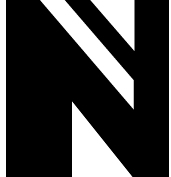I don’t know when to correct people, and when not to.
I have a lot of knowledge stored up in my brain. Now, I say “a lot”, but of course that’s relative, because compared to someone perhaps ten years older than I, it is a tiny amount of information; however, compared to (I tend to believe) my peers by age (the 24 – 30 crowd) I have stored up a significant amount of information.
This does not mean that I am ‘smarter’, or ‘wiser’, it simply means that I have a large amount of knowledge. It’s like asking everyone how many buckets of water they have; I would say: “I have, in comparison to others in my group, more buckets of water!” None of that means that I have any idea what to use that water for. Indeed, much of it may prove to be useless.
I like this ‘buckets of water’ analogy I have going, so I’m going to stick with it.
Those of us who have encountered water tend to understand that it can come in many forms, depending on what it’s mixed with. Sometimes it can be mixed with mud and dirt, or sugar, or coloring, or gelatin, or soap.
So if I have all these buckets of water, but half of them are mud water, and someone asks me for a drink…it seems safe to assume that half of my buckets are, in this situation, useless…perhaps even dangerous.
Wisdom is the ability to know which buckets are useful for which situation. It’s discernment, or understanding. Wisdom is what lets you give someone kool-aid when they ask for a drink, instead of gravel mix. Perhaps even more useful, it can help you determine whether you have -any- water that is appropriate for the situation. Perhaps you’re in a situation where someone very much needs something you actually don’t have. Wisdom is what helps you understand that “Wait, I understand the idea of what they’re asking for, even though I don’t have any of that. I should tell them that I’m sorry, I don’t have any.”
So, my original thought: I don’t know when to correct people, and when not to.
That is to say: I don’t know when it is appropriate or acceptable to show someone that they are giving someone a bucket of gravel-mix to drink, or even more terrifying, when they are giving someone a bucket of water to make a fire with.
I posted a Facebook status (I often turn to Facebook as a standby poll to test my theories) that asked the question: “If you pass by someone, and you clearly overhear them telling another person that “2 + 2 = 7, of course. That’s basic math.” …do you correct them?”
No one said “Yes.”
So, even if you happen to walk by, and you -clearly- see someone handing another person concrete-mix to use as shampoo, you would not correct them?
Why is that?
This is not a letter of derision; it is an honest question. I do not understand how correcting this situation (“Um, excuse me, it’s actually better to use shampoo for that. Here, I can show you where to find the information that will help you make this decision.”) could possibly cause more harm to either person. Offense? Sure, people can get offended when they’re corrected. But isn’t that reaction their responsibility?
I’m not saying that everyone needs to go around correcting everyone else all the time, or that you have to do it in an ‘offensive’ way. But that’s what Wisdom and Kindness are for, right? To help us know when we need to correct something, and to help us do it in a gentle way?
This whole thing started because I was thinking about children, and how they have so few buckets of water (knowledge) in the first place, and the people they interact with will be the ones who give them more, who teach them the uses for each kind, and who show them which kinds are good to have on hand at all times.
So…when is it ok?
